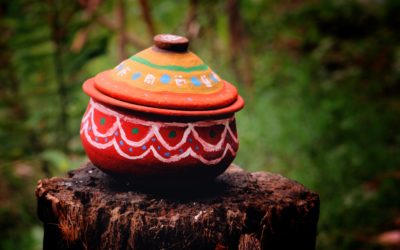When a loved one has passed away, there are various groups of people and organizations that can or should be contacted.
Immediately
The circumstances surrounding the death (e.g., expected vs unexpected) and where the death occurred (e.g., home, hospital) will determine the immediate contacts. Generally speaking, you should contact the following:
Death occurred at home while with a terminal illness:
If On Hospice, Call Hospice Provider
If the loved one was on Hospice care, contact the hospice care nurse/provider. They will be able to coordinate a staff member to come to the home and provide an official pronouncement of death.
Contact Primary Care Physician
If your loved one’s death was expected as they had a terminal illness, you can call the primary care physician, instead of 911. They may be able to coordinate a medical professional to declare death at the home, in which case, a funeral home would be able to do the pick-up directly from the home (versus a medical facility).
Unexpected death occurred at home
Call 911
If your loved one unexpectedly passed away at home, you should call 911. The EMT upon arrival may try to conduct CPR if a DNR is not in place. Depending on your state’s rules, the EMT may declare death, otherwise, the decedent will be transported to an emergency room where medical staff will officially pronounce the death. In cases where the death was sudden or suspicious, a coroner or medical examiner might also be required at the scene prior to the removal of the body.
Death occurred in a medical facility (e.g., Hospital, Assisted Living)
Alert the Staff
If you are with your loved one at the moment of their passing, you should alert the medical staff at that facility. An approved member of the medical staff will be able to officially pronounce death.
Once the immediate notifications to the proper authorities and/or health care professionals have been made, you should also contact:
- Organ Donation: If your loved one was an organ donor (check driver’s license and/or advanced directive), please notify the hospital and/or medical staff immediately. Many organs and tissues have very strict timeframes of viability after death. If the death occurred at home, it is very important to alert a hospital and/or tissue bank as soon as possible. Related: Organ Donation In Islam
- Primary care physician
- Next of kin and other immediate family members (e.g., parents, siblings, children)
- Dependent care: Babysitter, if childcare is needed; Pet sitter, if needed
In rare cases, you may need to initiate an autopsy
- Autopsy: Even if an autopsy is not required by law, a family still has the right to request one, especially if foul play is suspected due to medical neglect. They should then file a police report, contact an attorney, and have a certified forensic pathologist do the autopsy. Related: Autopsy In Islam
Prior To Burial (1-2 Days)
The next set of contacts will be important in the funeral arrangements
- Lawyer/Executor of Estate and Last Wishes: Obtain documents that outline any pre-planned funeral arrangements and/or specific burial requests. In the event your loved one did not have their burial wishes articulated either through a document or a trusted family member(s), it may be advisable for the next of kin to involve other immediate family members in deciding the burial arrangements
- Funeral Home: They will coordinate transport to the funeral preparation area (Ghusl), Janazah prayer area, and cemetery (Find Funeral Home)
- Mosque: Your local mosque and/or Islamic organization will be able to inform the broader community, facilitate Janazah prayer, and other potential needs (e.g., help with ghusl, financial burdens, grief counseling)
- Cemetery Services: In most cases, the funeral home or masjid can arrange the cemetery services. However, if you need to make your own arrangements, contact your local Muslim cemetery or cemetery with a dedicated Muslim section.
Related: What is the role of a Muslim funeral home and cemetery
Others that you should contact prior to the burial
- Extended family members
- Friends and community members
- Employer and colleagues
Other actions you should take within the first few days
- Secure property: If your loved one was the only caretaker of their home and other major assets (e.g., car), you should coordinate to have someone secure the assets until there is more time after the burial to handle the estate.
After Burial
Mental, Emotional, and Personal Matters
Once the burial is complete, it is important to take a moment and assess your emotional and mental well-being as well as those closest to you. Taking steps to process and grieve the death are important steps to eventually regaining some level of normalcy in the future. Many families look for ways to benefit their loved ones. As advised by the Prophet Muhammed (S), there are specific actions you can take that will directly benefit your loved one.
Learn More (Guide Coming Soon!)
Legal and Financial Matters
From a legal and financial perspective, it will be important to take the appropriate steps in handling the estate of the deceased. The specific steps will vary based on whether there was a will and/or trust in place. Aside from managing the estate and custody-related items, there is also basic financial “housekeeping” in terms of closing accounts and providing the proper notifications to organizations and government entities.
View Checklist: What Legal and Financial Steps Do I Need To Take After The Death of a Loved One?




